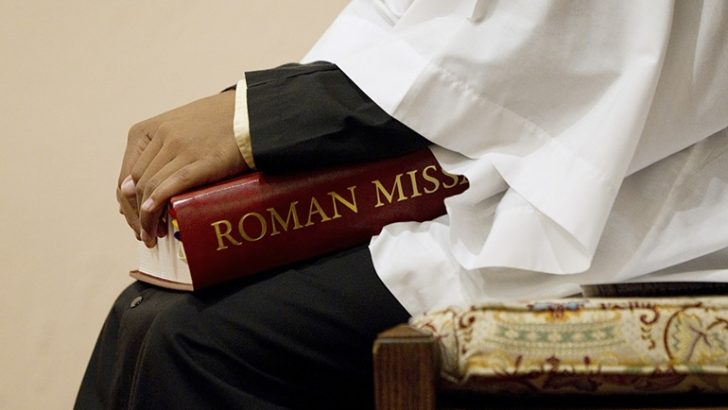Cost seen as barrier to new translation
Despite ongoing complaints from some parishioners about some of the texts of prayers used at Mass across the country, there are no plans to review it in Ireland or return to an earlier translation of the Missal, The Irish Catholic can reveal.
This is despite the fact that Pope Francis has now given local bishops the authority to take charge of new translations. The cost of any re-appraisal of the texts and the huge effort that was involved in the current translation have both been cited as factors.
Msgr Joseph McGuinness, who chairs the Irish Church’s Council for Liturgy, confirmed to The Irish Catholic this week that “there is no plan at present for the Irish Episcopal Conference either to authorise its own translation, or to revisit the translation produced by ICEL (the International Commission for English in the Liturgy) in 1998”.
Many commentators have favoured a return to the 1998 text claiming it is more comprehensible than the current text of the Mass in usage. That text had been ready to be implemented but was thrown out by the Vatican at the time amidst claims it did not accurately reflect the Latin original.
Bishop of Achonry Dr Brendan Kelly – who also sits on the bishops’ liturgy commission – said that the cost and effort of producing the current version of the Roman Missal made a revision at this time prohibitive.
“You can imagine the expense and the effort that went into the actual translation we have at the moment,” he said. Confirming that the hierarchy has no plans to discontinue the new texts he said: “it would be a huge task to revisit the translation of the Missal”.
In September, Pope Francis amended Church law to give local bishops more authority over the translation of the Mass, seen as a move to decentralise authority from Rome. However, the final say on whether a translation of the Mass is approved or not still rests with the Vatican.
Fr Danny Murphy from the National Centre of Liturgy in Maynooth agrees that some “pastoral and academic critique” in Ireland and throughout the English-speaking Church, suggests that the new translation is awkward and incomprehensible, and, he said, “it appears to disregard that English grammar is closer to German than Latin”.
“The uneven reception of the new edition and translation after six years is an indication that this may not have been a reasonable change. In order for a law to be binding, it must be reasonable,” he told The Irish Catholic.
According to Msgr McGuinness the new rules “present challenges” for both Rome and the local Church. He said this means Church leaders here taking a more ‘hands on’ approach and the Vatican showing a “willingness to have greater trust and confidence in the bishops’ conferences to fulfil their proper role”.


 Susan Gately
Susan Gately
